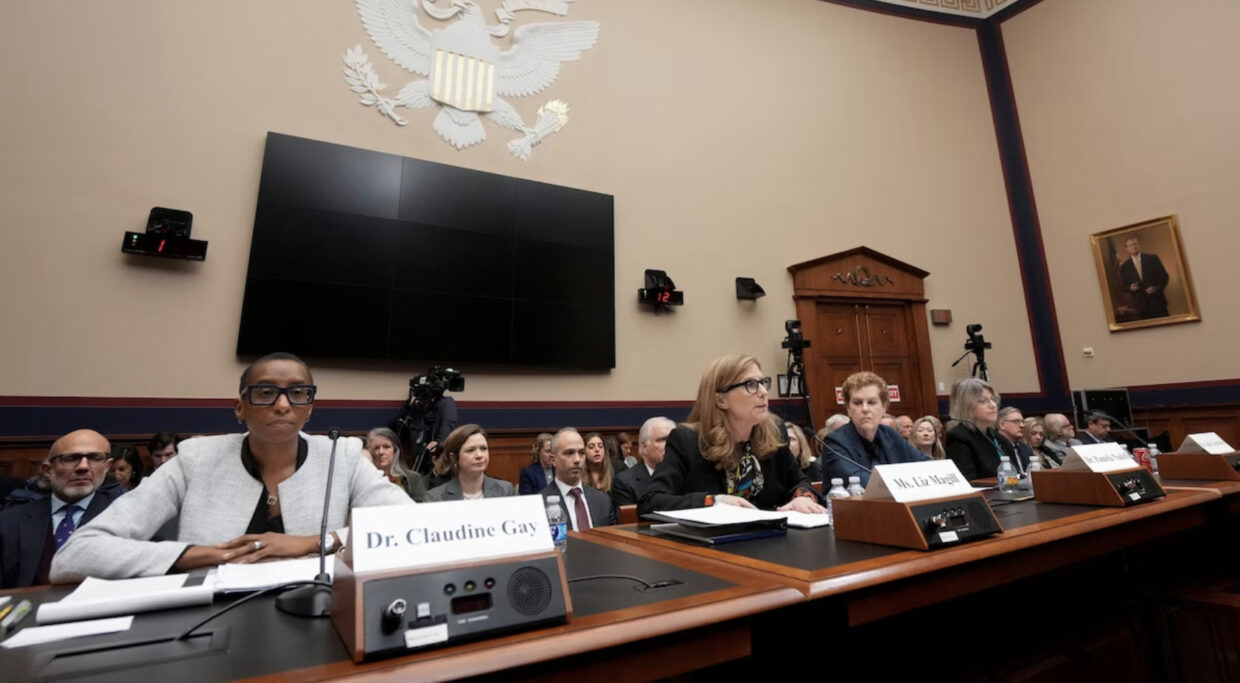
Yesterday (Tue), the House Education Committee summoned the Presidents of Harvard, Penn and MIT to a hearing pertaining to antisemitism on their campuses. “Hearing” is a more apt term than “listening,” because none of the latter took place. The Washington Post has a transcript of some of the conversation, which you can read to form your own impressions.
I think it’s obvious from the transcripts that the responses are pathetically vague and circular. The presidents attempt to yammer about free speech when confronted with issues pertaining to real harm to the students and are utterly unable to offer guarantees that might reassure parents that their students are not at risk of being assaulted and threatened. I hardly think anyone can seriously waffle around the fact that Jews and Israelis are experiencing acute anguish on university campuses, and the sorry excuses offered are an abdication of responsibility. Free speech is not the ultimate defense to all this, because much of what has occurred–threats, assaults, exclusions, restrictive policies, loyalty oath demands, etc.,–goes far beyond the question of government restrictions on speech. It also goes, at least in the case of these private institutions, to the question of monetary institutional support (which is also “speech”) and to the question of university presidents’ failure to condemn hateful rhetoric (which would also be a use of free speech.) At the same time, anyone looking for real, substantial answers for this problem would not find them at the committee hearing.because it was run like an inquisition rather than an effort to learn and educate.
If I were running the hearing and were truly interested in learning more about why campus climate in the Ivies and elsewhere is so noxious, here is what I would want to know: How are the mental health and support services on campus structured, and when do they address community issues rather than just personal challenges? How are decisions about funding research and teaching centers made, particularly the ones with stances and interests on the Israeli-Palestinian conflict? How are student clubs established, and under which conditions do they receive funding from the school? Notwithstanding academic freedom, do faculty receive any training about what is and is not legitimate grounds to end class (e.g., to participate in a partisan protest but perhaps not for a counterprotest)? Are there guidelines and regulations about circumstances that merit all-campus addresses and emails from university leadership? from school deans? from department chairs? If there are, do they apply equally to all political standpoints? Do presidents and chancellors comment freely on world events whether or not they are related to campus life? When protests happen on campus, who approves them, and what is the process? Is campus police involved, and to what extent? Does campus police liaise with the municipal police department in these situations? If a student is assaulted, or falls victim to some other hate crime, who investigates the complaint?
Piecing together the picture of campus climate is a complicated, multi-factor endeavor. And Elise Stefanik didn’t do it, not because she couldn’t, but because she didn’t want to. Generally speaking, running a hearing like this in the style of a cross examination does not reflect an intent to receive in-depth answers to difficult questions; in this case, I speculate that it was designed to supply sound bites of academics looking like clowns for the Trump 2024 campaign.




No comment yet, add your voice below!